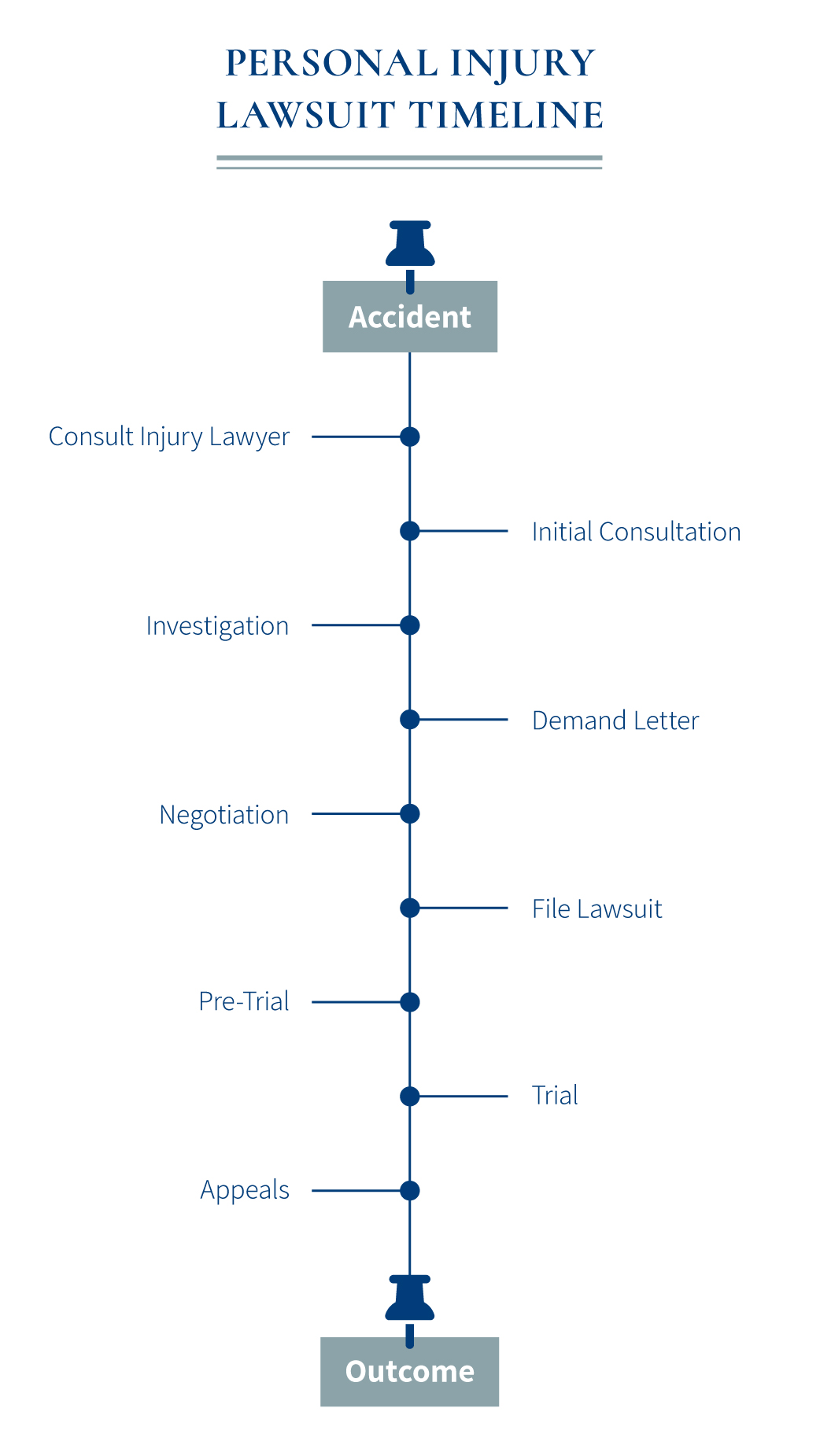Personal Injury Case Process
Get a Free Case Evaluation
The Jensen Personal Injury Law Case Process
After an accident, your world can feel turned upside down. You may have received medical care for injuries, filed an insurance claim, or even spoken with the police to file a report. Now, you’re looking for guidance on the next steps. If you’re unfamiliar with the personal injury case process, that’s normal—many people are. This page will walk you through each stage, helping you understand what to expect when working with a personal injury lawyer.
Initial Consultation
Your first meeting with a personal injury lawyer is a critical step in the personal injury case process. During this free consultation, you'll share details about your accident, injuries, and the events leading up to it. Bring relevant documents, like medical records or police reports, to help the lawyer evaluate your case. This is also your opportunity to ask questions and decide if the personal injury attorney fits your needs. Expect to leave with a clear understanding of your legal options and the next steps.
What It Means for You: Share your story and provide documents to help the lawyer evaluate and start building your case.
Investigation
Once you hire a personal injury lawyer, they’ll begin a thorough investigation to build your case. This involves gathering evidence like police reports, medical records, photos, videos, and witness statements. Your lawyer may also consult experts to strengthen your claim. While they handle the legal groundwork, your focus should remain on recovery—keep them updated about your medical treatments or any changes in your condition.
What It Means for You: Focus on recovery while keeping your personal injury lawyer updated on your treatment and any new information.
Demand Letter & Negotiation
To initiate negotiations, your lawyer will send a demand letter to the at-fault party’s insurance company. This letter outlines the details of your accident, the injuries you sustained, and the compensation you're seeking. The insurance company may accept, deny, or counteroffer. Your lawyer will guide you through these negotiations to help you secure a fair settlement. Most cases are resolved at this stage.
What It Means for You: Review settlement offers and rely on your lawyer’s advice to decide whether to accept or proceed to litigation.
Filing Lawsuit
If negotiations don’t lead to a fair settlement, your lawyer will file a lawsuit. Many personal injury cases are settled before filing a lawsuit, so this step may not be necessary. This formal action notifies the defendant of the complaint and begins the litigation process. Filing a lawsuit often motivates the other party to settle, but if not, your case may proceed to trial. Your personal injury attorney will prepare you for the steps ahead and keep you informed throughout the process.
What It Means for You: Rely on your attorney to handle legal filings while providing support and information as requested.
Pre-Trial
During pre-trial, both sides exchange evidence relevant to the case. This includes producing electronic and physical documents such as emails or medical reports, answering questions from the opposition while under oath, and collecting witness depositions. As discovery concludes, both sides will try to reach a settlement. If that fails, mediation may take place before trial. The defendant may also file motions to dismiss parts of the case.
What It Means for You: Be prepared to answer questions from the opposing side and attend a mediation session if necessary.
Trial & Appeals
If the case doesn’t settle, it goes to trial. Your attorney will present evidence, including witness testimony, to support your case, and the defense will argue in response. The judge or jury will then decide whether the defendant is at fault and determine any compensation. Following a verdict, either side may file an appeal to re-open the case in a higher court.
What It Means for You: Consult with your personal injury lawyer on court etiquette, review your testimony, and prepare for possible cross-examination during the trial.
Outcome
Whether the case is settled out of court or goes to trial, the goal is to secure compensation for your injuries. In a favorable outcome, your attorney will handle disbursements, including medical liens, legal fees, and your final award. At Jensen Personal Injury Law, we work on a contingency fee. This means that we will only charge a fee if we win.
What It Means for You: Be prepared for the potential for further court proceedings and rely on your lawyer to advocate for your rights effectively.

